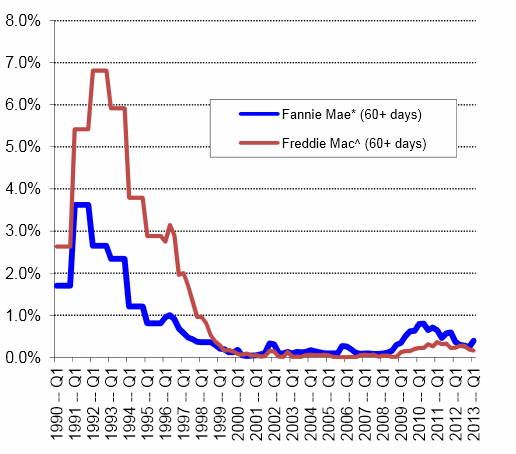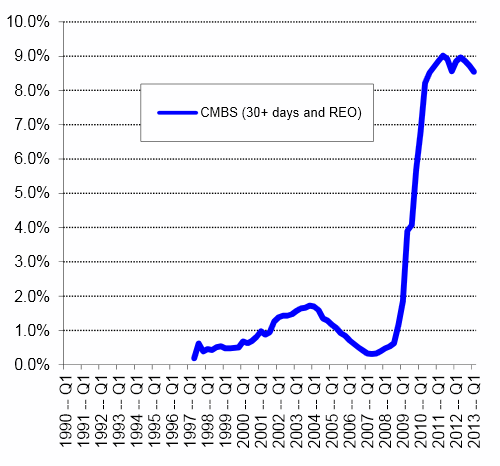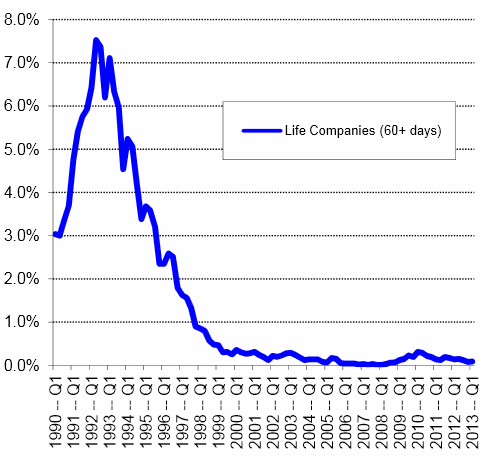Delinquency rates for commercial and multifamily mortgages generally declined during the first quarter of the year except for a notable increase in Fannie Mae's portfolio. The Mortgage Bankers Association's Commercial/Multifamily Delinquency Report said delinquency rates for loans held by five major investor groups showed moderate to significant declines in three, an increase of one basis point (to 0.09 percent) in the life insurance sector, and a 15 basis point uptick for Fannie Mae.
In addition to life insurance companies and Fannie Mae, MBA tracks delinquencies in portfolios held by commercial banks and thrifts, commercial mortgage-backed securities (CMBS), and Freddie Mac. Together these groups hold more than 80 percent of outstanding commercial/multifamily mortgage debt.
Fannie Mae's delinquencies increased from 0.24 percent at the end of the fourth quarter of 2012 to 0.39 percent at the end of the first quarter following four straight quarters where the rate declined. Fannie Mae's delinquencies during the current crisis peaked at 0.71 percent at the end of the first quarter of 2010.

Rates at commercial banks and thrifts were down 19 basis points to 2.43 percent and Freddie Mac's rate dropped from 0.19 percent to 0.16 percent, about half the rate of its recent peak of 0.31 percent in Q4 of 2010.

Delinquencies in CMBS were at 8.55 percent at the end of the quarter compared to 8.72 percent at the end of the previous quarter. Those delinquencies set a series record high of 9.02 percent in the second quarter of 2011.

With the exception of CMBS, even the recent (2010-2011) peaks in the various portfolios are a fraction of the delinquencies experienced in the early 1990s when, for example life insurance portfolios experienced a peak delinquency of 7.53 percent and Freddie Mac's multifamily loan delinquencies were at 6.81 percent.

Jamie Woodwell, MBA's Vice President of Commercial Real Estate research said "Commercial and multifamily mortgage performance continues to improve. The improving economy and property fundamentals are supporting loan payments and fewer loans are maturing this year than did last year or the year before. With interest rates still low, property incomes improving and property values on the rise, those loans that are maturing are facing an easier environment in which to refinance."
MBS cautions that, because each investor groups tracks delinquencies in its own way the rates are not comparable from one group to another.







